Working and Performance of the Indian Parliament

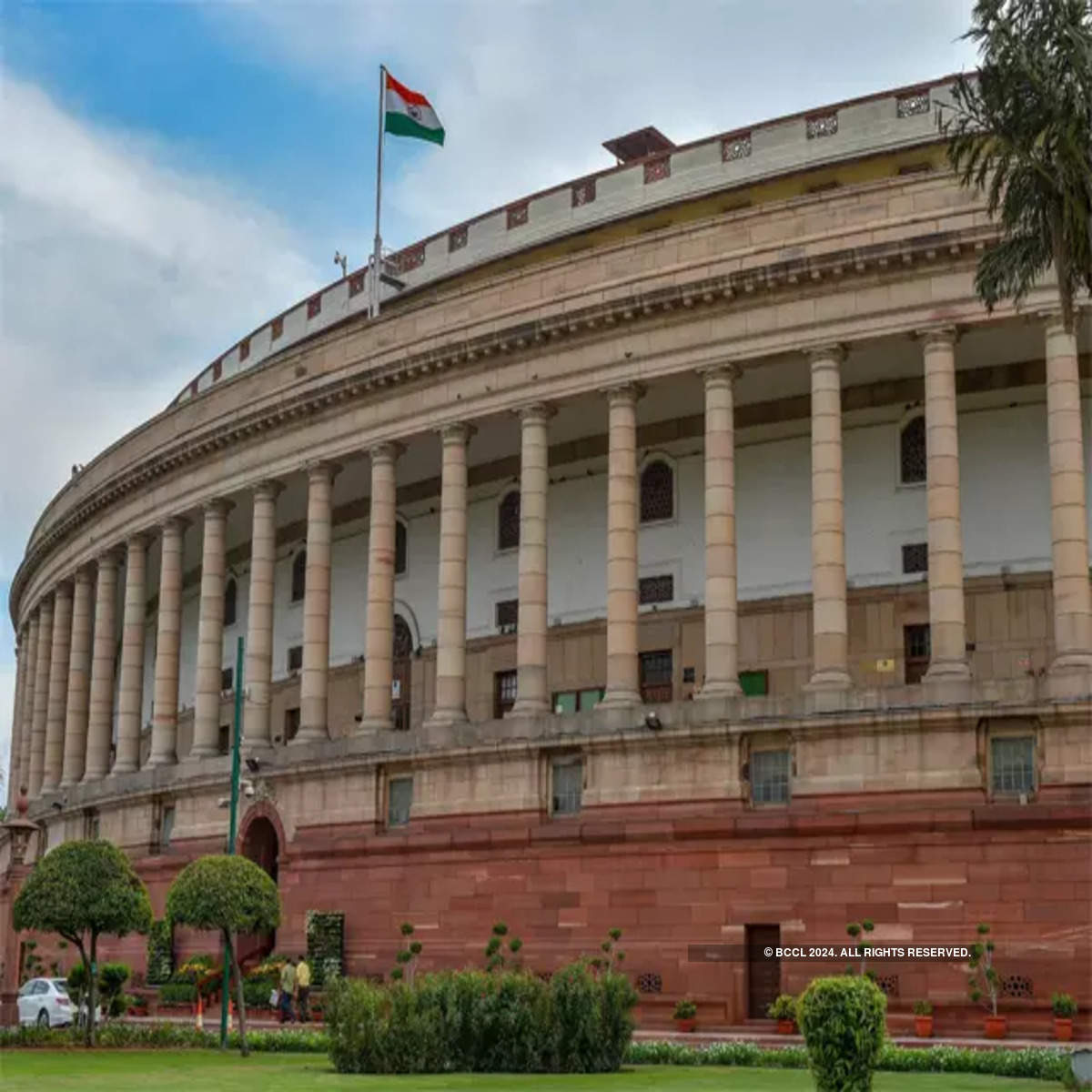
Effectiveness of Parliament
Moving from the above said term the parliament is a place of debate, discussion, decision making based on vote or voice, by the people or representatives of such people. In a small village level, there are old men considered as seniors who take out the decision for and on behalf of the village.
In a democratic setup, with specific reference to indirect democracy, that too in a large area and by far the humongous population it is a necessary to evaluate the time spent by the people or representatives in regards with the qualitative or quantitative manner. In a layman’s perspective of the duty of the parliamentarians, every session which is being organized is for the fruitfulness of the nation on a whole and taxpayers money being put to good use.
Working Hours
The below statistics is the data given by PRS Legislature. It is until and up to 2019 sessions of the 17th Lok Sabha.
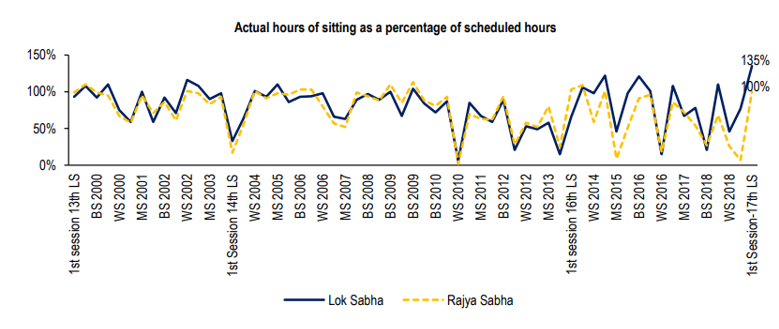
Inferring from the above, we can say that from the 1st session of 13th Lok sabha and Rajya Sabha session to the end of 15th Lok sabha and Rajya Sabha session, there was a fair and average amount of participation. The debates, discussions did happen. Post the 16th Lok sabha session we can see valleys and mountains in the graph. There is a perfect gestural level participation of the members. Here we have to keep in mind of the fact that the time period from 13th to 15th Lok sabha and Rajya sabha sessions, constituted the UPA where the government was formed on the support of the major regional parties. Then there came the NDA government where we had the major walkouts and refusal of discussion and major war of words outside the parliament than the discussion being done inside, considering the situation presented is that the NDA government came up with full majority, including in its second term. Parliament is planned to work for 6 hours a day for a session, except for some occasions such as election of the speaker and address of the president. During this session the Lok Sabha functioned for 281 hours which is 135% and the Rajya Sabha functioned for 195 hours, which is its 100%. Taking up the past 20 years of data, on an average Lok sabha functioning was upto 81% and Rajya sabha was upto 76%.
Question Hours and No.of.Questions tackled:
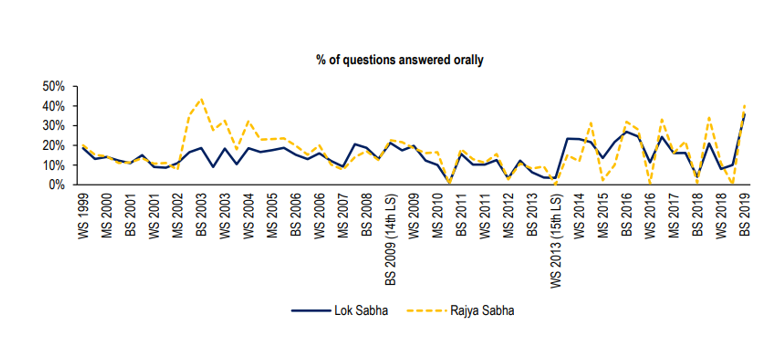
The starred questions involving the Green paper, had to be answered orally by the minister. The process of questioning involves 15 days prior notice to the speaker. The speaker directs it to the ministry of parliamentary affairs and the respective ministry is assigned to take it up to the concern department for the facts and data. Such oral answers are given a date to be answered by the concern minister. During the 17th session, around 36% of the questions were answered in Lok sabha and 40% of the questions were answered in Rajya sabha by the concern ministers. The 20 years average of LS and RS being 15% and 17% respectively.
Legislative Business:
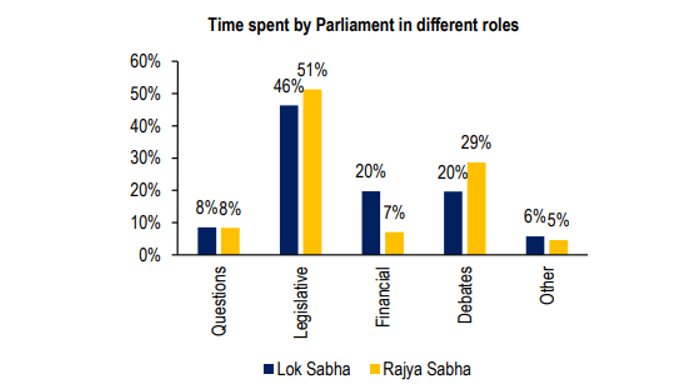
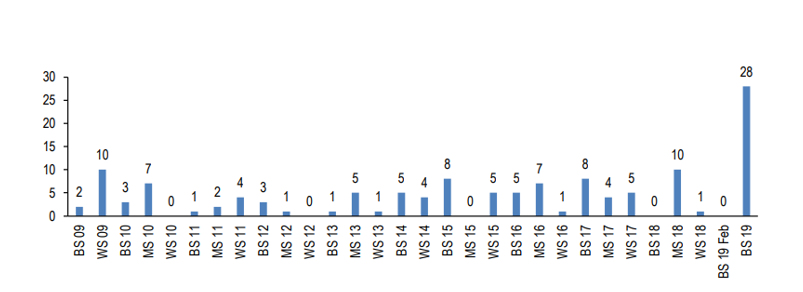
We have to look into the fact that Budget session of 2019 has the largest number of bills being introduced to be passed in the same session. And it is the highest of all comparative to the previous twenty years average. For a bill to become an act, there must be introduction, circulation, second reading, clause by clause debate and discussion and then if needed, it is to be introduced to the Department related standing committee (DRSC) if any and then the final voting. On the 17th Lok sabha, none out of 28 bills were referred to DRSC and out of which 5 of them were under scrutiny by the previous Lok Sabha committee. Out of this 25 bills (66%) were introduced, discussed and passed in same day. This also includes the tabling the Presidential order that supersedes the Constitutional order (Application to J&K), and a resolution to modify Article 370, saying that all aspects of Constitution of India shall apply to the Jammu and Kashmir. Then it also introduced the Jammu and Kashmir Re-organization bill 2019.

In regards with the budget, however it is to be guillotined as the budget session although being introduced need to be passed as it is an indirect test of strength and majority. Around 20% of the demand of grants was introduced for discussion and rest were guillotined. The respective ministries were; - MO Road transport and highways-MO Agriculture and farmers welfare - MO Rural development - MO Youth affairs and sport-MO Railways
Debates:
The quality of the debates on a long run which also considers the not only with the above data up to 2019, but also until recent past of 2023 Budget sessions. Considering the 2019 where the NDA government came up with huge number of bills and passed with literally no time of detailed discussion, the time of discussion has largely being reduced. Quality analysis can be given only if the sufficient amount of time is given for the respective bill for analysis. Under Parliamentary rule 193, dealing with short duration discussions there were considerably less participants for discussion as per the below data from PRS for winter session of 2022.
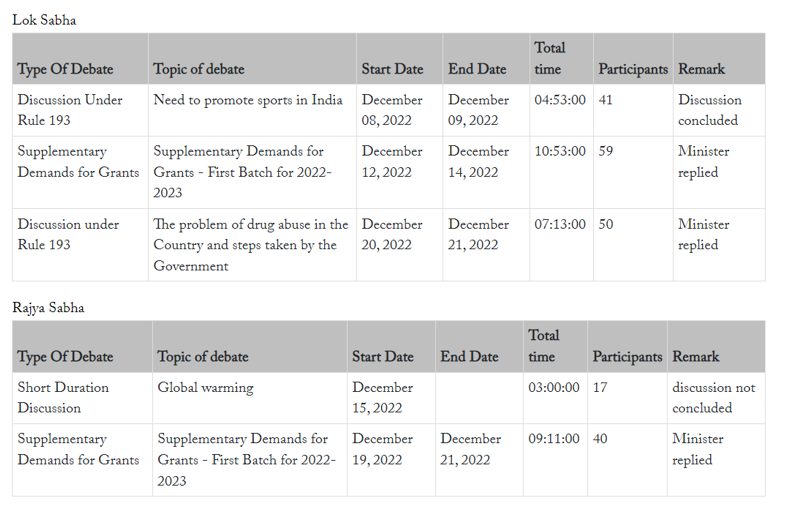
Conclusion: The inferences shows that there is need of more time to discuss the drafts of the bills. And since it is up to 2019, we must consider the fact that it is pre-covid. During the covid and post covid sessions were considerably more effective to the previous sessions. Subjectively the quality of work by the parliamentarians in the parliament is debatably good and need to grow is also enormous.

